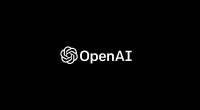Apple is preparing to make a significant shift in how iPad users in Europe will be able to download apps. As of September 16, iPad users in the European Union will have the ability to download apps from third-party app stores, marking the end of the company’s historically closed app ecosystem for iPads. This change comes alongside the release of iPadOS 18, the latest version of the operating system specifically designed for Apple’s tablet.
The move is driven by the European Union’s Digital Markets Act (DMA), which aims to promote competition and reduce the dominance of major tech companies, including Apple, in digital markets. The DMA currently classifies certain companies as “gatekeepers,” a label that applies to firms with significant control over key digital platforms. Apple, with its dominance over mobile app distribution through the App Store, was one of the companies identified as a gatekeeper.
For users, this means more freedom to choose where they download apps and more variety in the kinds of apps available. It also allows developers to explore new business models, potentially offering apps at lower prices or even for free, without the need to pay Apple’s commission fees. However, this shift is not without challenges. Apple’s Notarization process ensures that apps remain secure, but the introduction of third-party stores could raise concerns about the safety and reliability of apps distributed outside the App Store.
Initially, Apple was required to allow third-party app stores on iPhones in the European Union earlier this year. With the upcoming launch of iPadOS 18, similar measures will now be extended to iPads. Although iPadOS had not initially met the user threshold required for DMA compliance, the European Commission used its discretionary powers to include it due to the platform’s “locked-in effects,” especially for business users. This inclusion means that, starting September 16, iPad users will be able to bypass the App Store for the first time and download apps through third-party app marketplaces.
The introduction of third-party app stores on iPads is poised to create new opportunities for developers looking to distribute their apps outside of Apple’s App Store. Under the new system, developers can publish apps through alternative marketplaces, which will no longer be subject to Apple’s traditional commission structure. Although apps will still need to go through a Notarization process to ensure security and encryption, developers will have greater control over how their apps are distributed and marketed.
Moreover, Apple has updated its App Review Guidelines to include iPadOS in its Notarization requirements. This means that even apps sold outside the App Store will need to meet Apple’s safety and security standards before they can be released to users. Developers who enter into the Alternative Terms Addendum for Apps in the EU will also benefit from reduced App Store commission rates and can start accruing first annual installs of iPadOS apps as soon as the new system goes live.
Another significant change accompanying the release of iPadOS 18 is Apple’s decision to allow developers to use alternative browser engines on iPads. Up until now, all browsers on iOS and iPadOS, including popular ones like Chrome and Firefox, were required to use Apple’s WebKit engine to render web content. This restriction limited the functionality and innovation that developers could bring to their browsers. With the new rules, however, developers will be able to create browsers that use their own engines, opening the door for more diverse web browsing experiences on the iPad.
This change follows a similar decision made earlier this year for iPhones, where developers were granted the freedom to use alternative browser engines. Although no major browser developers have yet taken advantage of this opportunity, it is expected that the freedom to use alternative engines will result in improved performance and additional features for iPad users. Whether Google or other companies will develop EU-specific versions of their browsers to capitalize on this new freedom remains to be seen.
The Tech Portal is published by Blue Box Media Private Limited. Our investors have no influence over our reporting. Read our full Ownership and Funding Disclosure →






